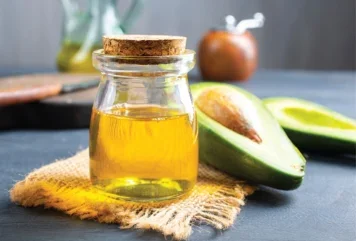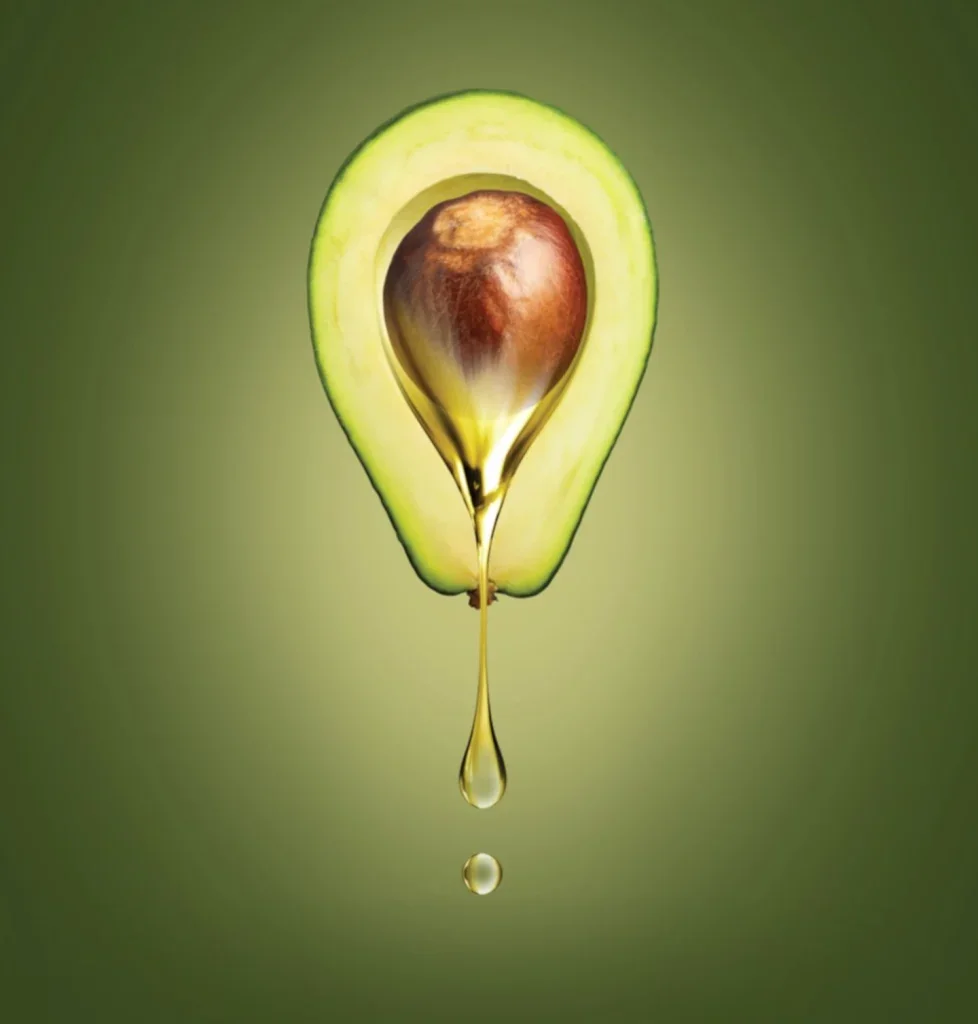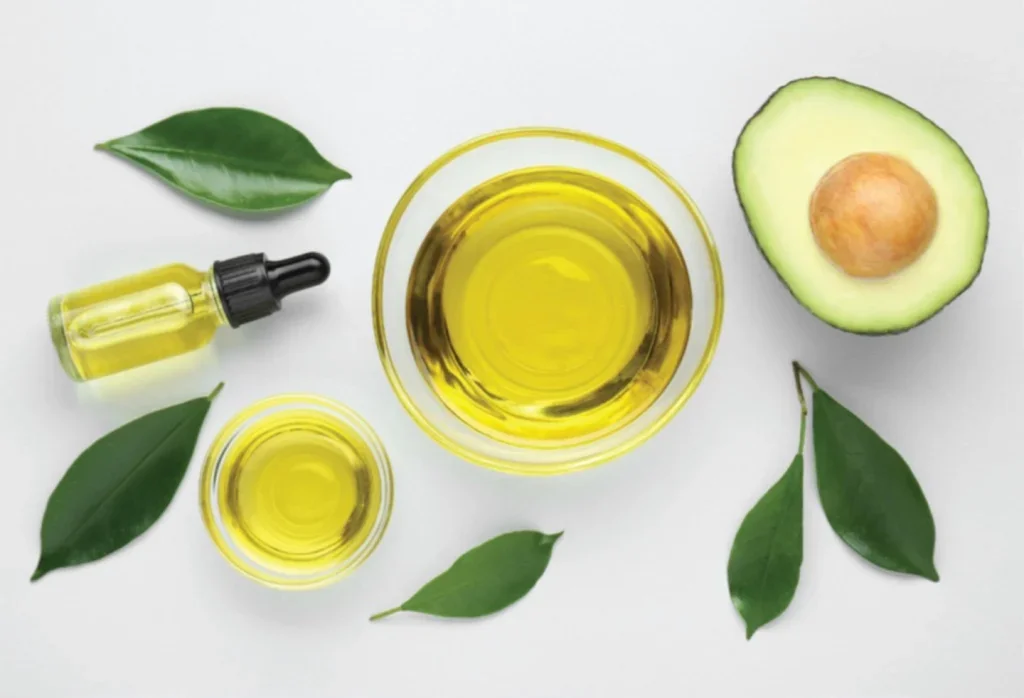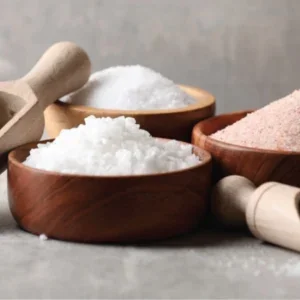
According to Whole Foods Market, 2023 was the year that avocado oil was set to go mainstream. While being a staple of the natural food category for years, the company reasoned in their 2022 report on upcoming food trends, avocado oil could now be found on grocery shelves. They weren’t off the mark. Miraj Shah, director of Crofts Avocado Oil, shares that demand for the product has grown hugely in the years following the coronavirus pandemic. “That was really a driver for people to understand more about healthy living,” he says. Plus, adds Alice Aird, who manages global marketing and UK/EU logistics at avocado oil producer Olivado, practical hurdles like oil shortages due to the war in Ukraine, export issues and failed crops have also driven interest.
And its star still appears to be on the rise. From 2023–2027, market research firm Technavio forecasts the global avocado oil market size to grow by $516.45 million, which amounts to a yearly growth rate of 12.95%. Another firm, Research and Markets, puts the estimated value of the global avocado oil market at $1bn by 2032.
“It has some big positive attributes – including high oleic fatty acid content and a high smoke point – to thank for its popularity,” reads the Whole Foods Market report. And it seems that health-conscious consumers are increasingly willing to pay for a product they see as premium quality and better for them.

A healthier choice
Avocado is a healthy oil for people to choose, says dietitian at the British Heart Foundation, Tracy Parker. One of its main benefits is that it is low in saturated fat (this makes up around 12% of its content) and high in monounsaturated fats, like oleic acid.
Saturated and unsaturated fats are the two main types of fat found in food. The difference lies in their chemical structure, which determines their distinct properties – including their impacts on health. The latter kind are sometimes referred to as ‘good’ or ‘healthy’ fats, because in moderate quantities they can improve cholesterol levels, reduce inflammation and support the body to function at its best.
Saturated fats, on the other hand, can increase cholesterol and the risk of heart disease and stroke. “Our current advice is that it’s better for our hearts to replace saturated fats, so that’s from butters, lards, coconut oil etcetera, with unsaturated fat,” Parker explains. Plus, avocado oil is a really good source of vitamin E, she adds. “Which is a natural antioxidant, so that helps to protect our membranes from damage and inflammation.” It contains other antioxidants, like lutein and polyphenols, as well.
“Because it’s a higher monounsaturated oil, it also has quite a high smoke point,” Parker says. “The higher the smoke point of fat and oil, the greater the stability.” The smoke point is when the fatty acids within the oil begin to break down and burn. Not only does this change the oil’s taste and composition, but it can diminish its nutritional value, too.
This means that avocado oil can be used for cooking at higher temperatures. For extra virgin avocado oils, which are not subject to hightemperature processing, the smoke point might be around 180–250ºC, depending on the producer. Refined oils will have a higher smoke point of around 270ºC, though most people are unlikely to be cooking at high enough temperatures at home for common oils to reach their smoke point, Parker notes. She gives an example: if you were frying an egg, the cooking temperature would be about 170ºC. Yet the smoke point of most oils is over 180ºC. It is more of a concern for commercial food production and restaurant kitchens.
An all-rounder
Compared to olive oil, perhaps the best known ‘healthy’ fat, avocado oil is more subtle in flavour. You could liken it to a ripe avocado, Shah explains. “It doesn’t have a very strong smell, it doesn’t really have a very punchy sort of flavour. It’s very mellow, it’s very buttery. And that’s what we translate into the oil.” Because of this, it can be used to cook food without changing its flavour, he adds. And if you were to use it as is, for instance in dressings or dips, you would get that light, creamy avocado taste.
While avocado oil is mostly a consumer product, Shah shares that there has been demand from food service companies, restaurants and hotels to include it in their cooking. Mostly, though, this is for use in salad dressings, he says, due to cost. “It does become quite expensive to use it as a frying oil, and that’s mainly because of the cost of avocados,” he explains. Yet the oil’s properties differ depending on its grade: extra virgin, virgin or refined. Those explained above are for extra virgin oils. “The real mark of quality is extra virgin or virgin,” Shah says. “That defines the production process and the temperature you’re running at.”
Extra virgin avocado oil is produced at lower temperatures – around 45–50ºC – where high-quality avocados are pressed with the seed and skin removed. Because no excess heat or chemicals are used, the taste, smell, colour and nutritional properties of the avocado are preserved, Shah explains. “The same fat you find in eating an avocado is still present in the oil, without damaging anything.”
Virgin oil is produced the same way, but with avocados that are slightly overripe. The resulting oil may also have higher free fatty acid content – a marker of degradation or spoilage. For this reason, extra virgin is considered better quality, though both are more beneficial for health than refined oil, Shah argues.
With refined oils, the entire fruit is first crushed – skin, seed and all – creating what is called crude avocado oil. This has a strong smell and bitter taste, and is very dark in colour. It is then put through a series of processes that can include heat treatment, deodorising, bleaching and more, he explains. The result is a neutral oil that loses its natural smell, taste, colour, flavour and has diminished nutritional value, yet it has a higher smoke point.
Greener growing
Because avocados need a lot of water to grow, concerns have been raised around the sustainability of making their oil. Here, the scale and strategies of production can make a big difference in reducing its environmental footprint. Olivado, who make coldpressed extra virgin avocado oil, work directly with their farmers to reduce their impact. “We train the farms to be climate smart,” says Aird. For instance, using collected rainwater for the avocado tree seedlings. The company also helps farmers to become organically certified and has a biofuel facility in Kenya, which has a circular economy, she explains. “Any waste is converted into energy to power the factory and trucks, and the by-product then goes back under trees as rich fertiliser.”
And in Kenya, around 70% of avocados are grown by smallholder farmers, adds Shah. Rather than irrigate their farms – which often means tapping water from natural sources like dams while creating significant water wastage – they would rely on rainwater. This makes them more sustainable than big commercial operations, he says. “The majority of the olives that are grown in the Mediterranean are all grown by large-scale commercial farms, and they do irrigate, and they do use quite a lot of water.”
Plus, he adds, smallholder farmers do not tend to monocrop, which is the practice of growing a single crop on the same land, year after year. This can upset the soil’s natural balance, depleting its nutrients and biodiversity. Though, that said, not all avocado farming is done in this way. “If we start comparing it to avocado growing in Mexico, they’re using large-scale commercial farms, which do need a lot of water in terms of irrigation,” says Shah. If demand for avocado oil keeps growing, scaling production sustainably will certainly be a challenge for the industry to grapple with.

The new olive oil?
Could avocado oil usurp olive oil’s position as the best-known ‘healthy’ fat? It has a similar nutritional profile to olive oil, says Parker, so either are a good option in switching out saturated fats. She wouldn’t necessarily say that one is ‘healthier’ than the other, however.
Avocado oil is also typically a bit more expensive than olive, with extra virgin and virgin varieties being dearer than refined. That might prevent more people from using it for cooking, rather than just dressing and dips.
Still, both Aird and Shah predict that demand will continue to rise in the coming years. Most of this growth will probably be driven by refined avocado oils rather than virgin, adds Shah. “But as people really understand the products… and research around extra virgin versus refined does come out there, I think they will start shifting.”
Choosing a healthier oil may seem like a small change, but it is not at all, explains Shah – after all, most dishes are cooked with some kind of fat. If you use the better oil each time you cook, the health benefits will add up in the long run.






